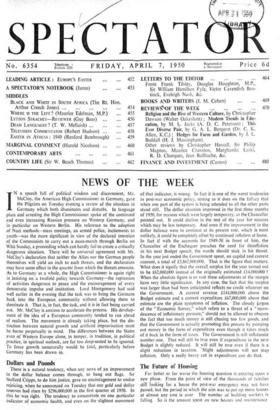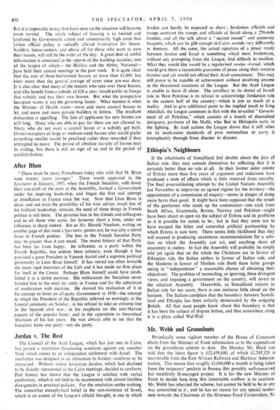The Future of Housing
For better or for worse the housing question is entering upon a new phase. From the point of view of the thousands of families still looking for a house the post-war emergency may not have passed, but the period in which the aim was to put up more houses at almost any cost is over - The number of building workers is falling. So is the amount spent on new houses and maintenance 'But it is impossible to say that from now On the situation will become ignore normal. The whole subject of housing is so twisted and confused by Government action and unnecessarily high costs that
' unless official policy is radically altered frustration for house- builders, house-seekers, and above all for those who want to own their homes, will still be the order of the day. A great deal of useful infoimation is contained in the .reports of the building societies, two of the largest of which— the Halifax and the Abbey National— pave held their annual meetings in the past week. It is quite clear that the cost of three-bedroomed houses, at more than £1,400, has risen more than the general a,verage of costs since pre-war days. It is also clear that many of the tenants who take over these houses, and who benefit from a subsidy of £26 a year, Would prefer to forego that subsidy and buy their own houses. But what the prospective 'occupant wants is not the governing factor. What matters is what the Minister of Health wants—more.and more council houses to Jet, and more and more private builders in fetters. The resultant dislocation is appalling. The lists of applicants for new houses are still long. Many who are able to pay for them are not allowed to. Many who do not want a council house or a subsidy get both. Owner-occupiers of large or medium-sized houses who would prefer something smaller would be penalised rather than rewarded if they attempted to move. The period of absolute scarcity of houses may be ending, but there is still no sign of an end to the period of tualdistribution.







































